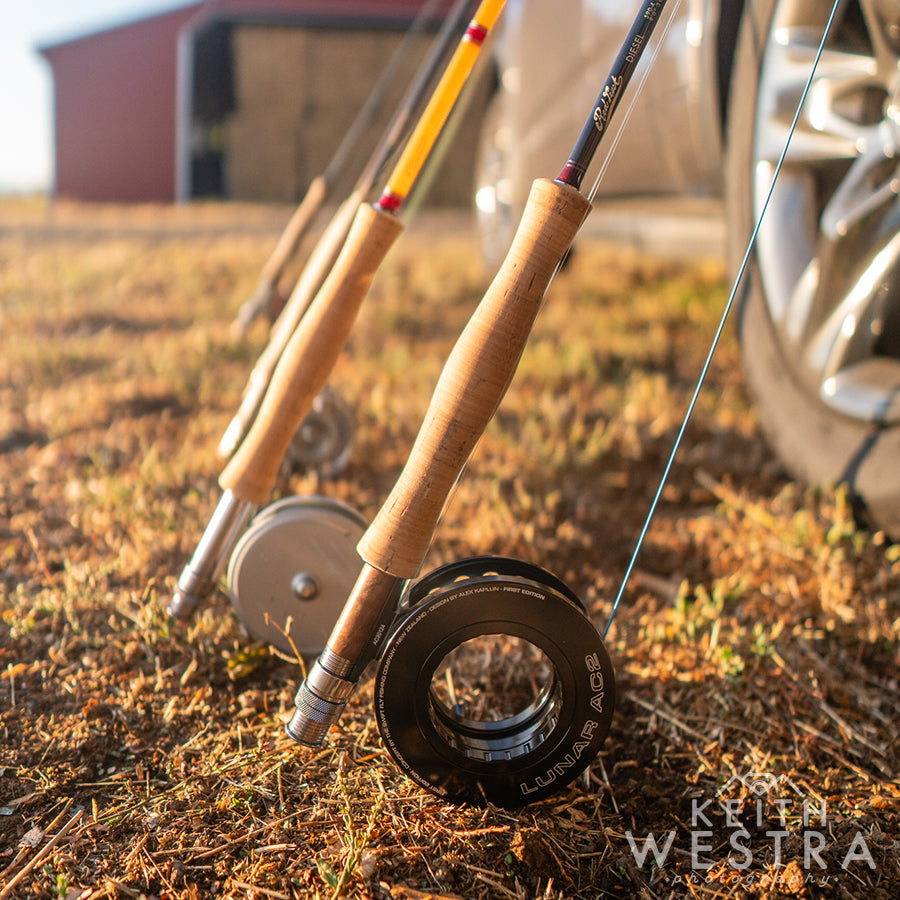The Evolution of the Modern Fly Fishing Rod
From Macedonia to Montana, how did we wind up with today’s technology?
Of all the thoughts that drift by when you’re on the water, the history of the rod in your hand might not top the list. But with every cast, you are celebrating two millennia of fly rod history and innovation. And though the earliest recorded fly rods bore little resemblance to their contemporary kin, they satisfied the same fundamental desire: outwitting Mother Nature amid her most serene landscapes.
The earliest references to fly fishing rods date back to the book Aelian’s Natural History. Published in 200 AD by Roman angler Aelian, the two thousand year old text illustrates the Macedonian fishing technique in which red wool and homemade hooks were tied to wooden branches. The wood rods of this period were extremely stiff and heavy, little more than glorified tree bows that could weigh upwards of 20 pounds. These cumbersome casters remained the standard even during the time of Izaak Walton, author of one of fly fishing’s defining works, The Complete Angler.
History of Fly Rods in the 17th and 18th Century
In the 17th century, long and hefty branches began to evolve into more modern forms, with craftsmen hollowing fly rods to reduce their weight. Then came one of the most substantial developments in the history of the fly rods: as builders experimented with various types of wood and joined the pieces to create custom rods, the first ferrule systems came to be and made way for countless variations in fly rod tapers.
Materials varied geographically, but the Greenheart wood variety was a favorite as recently as the Hardy Fly Rods of the 1960s. Nothing, however, compared to the bamboo fly rods which gained great popularity in the 18th century for their lightweight composition and pliability. In 1845, an American violin maker named Samuel Phillipe created what is believed to be the first split cane fly fishing rod, encouraging many American anglers to develop new tapers and modify ferrule systems with this technique. The early split cane rods were 3 and 4 strip designs and after a few years, 6-strip rods were also introduced. According to some sources, Hiram Leonard, the founder of H.L. Leonard Rod Company, created the first 6-strip rods, but others argue that it was Samuel Phillipe’s friend, Charles Murphy, who introduced the concept.
Developments of Fly Rods in the 19th Century
Fly fishing gained huge popularity in the 19th century. This was also the time during which rod builders made immense progress in splitting cane and creating tapers using beveling machines, leading to the birth of companies such as South Bend, Hardy Brothers, and Montague. Split cane remained the most popular and widely used material for making fly fishing rods until the early part of the 20th century when fiberglass and new resins caught the attention of anglers and the industry. In 1946, a military researcher by the name of Dr. Howald broke his split cane rod and used a fiberglass tube to fix it. As a result, the Shakespeare Company launched the first commercial fiberglass rods and dubbed the rod making process the “Howald Process.” These rods featured a fiberglass “fabric” wrapped in a spiral around a steel mandrel. Strands of additional fiber, aligned with the axis of the mandrel, were placed over the fiberglass material.
The Transition from Fiberglass to Graphite in the Modern-day
Advancements in the construction of fiberglass fly fishing rods continued and greatly lowered manufacturing costs and the availability of the equipment to enthusiasts. Split cane started losing its practical popularity, but they continued to be manufactured by companies catering to more traditional anglers. The breakthrough that brought them to modern front was graphite fly fishing rods hit the market for the first time in 1973 (Fenwick and Hardy both claim to be the manufacturers of the first graphite rods). Within the next few years, a number of companies started taking part in the development and refinement of graphite fly rods. Graphite brought revolution to the fly fishing industry and deeply impacted the fishing styles that many fishermen now use today. Improvements in rod design and discovery of processes to create stronger, lightweight fly rods have all contributed to a successful and positive evolution of the present-day graphite fly fishing rods. Boron was also considered as a viable material to create rod blanks, but for now, graphite remains as the material of choice and is most likely to be in this status for some time.
Today’s Fly Rods
We celebrate timeless fly rods with the Leland Sonoma Series, above. But there are some other cutting-edge options that we love as well. To view the latest advancements in graphite fly rod technology make sure to check out the new Loop Cross S1 Fly Rods. Both rods now use the 3M nano titanium resin system. This new resign not only makes fly rods lighter, but also greatly increases their break resistance.

